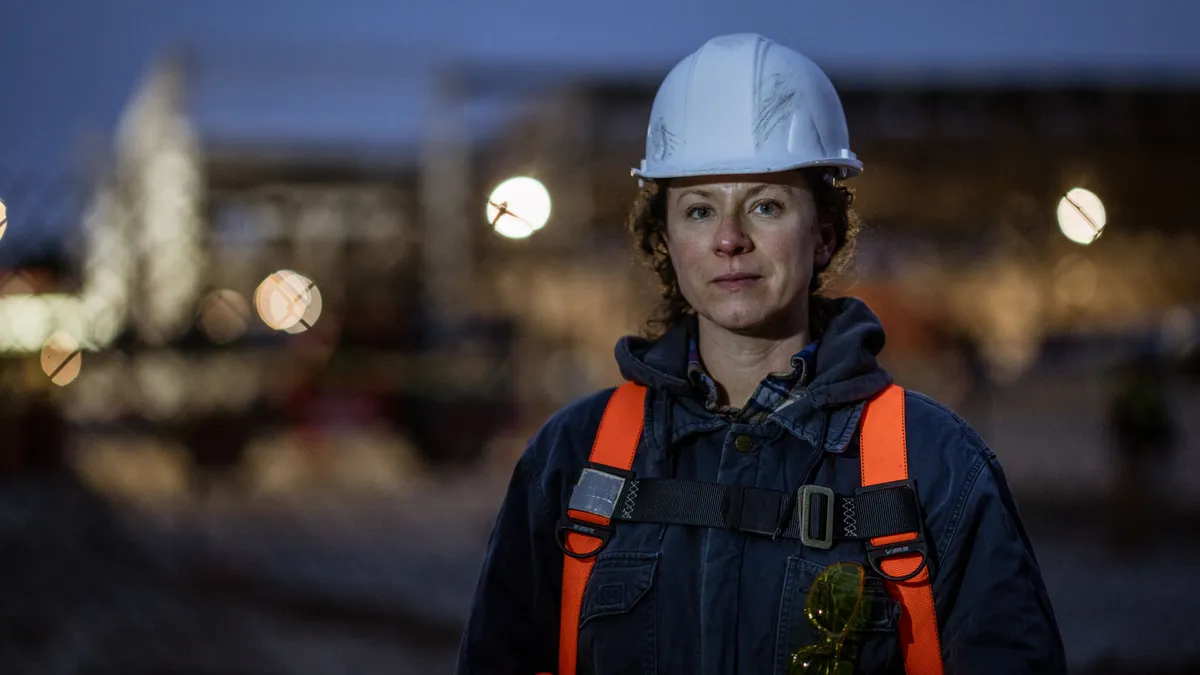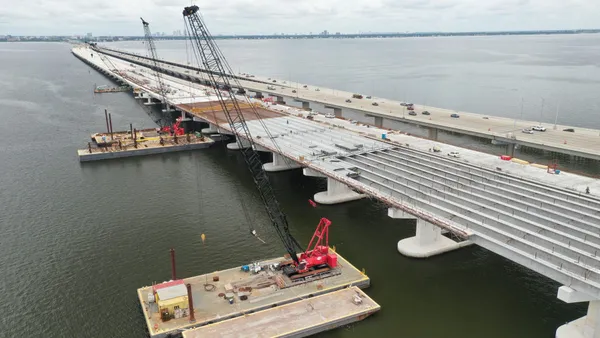Dive Brief:
-
In a filing with the U.S. Securities and Exchange Commission, general contractor Tutor Perini revealed Tuesday that it has received a contract change order in the amount of $31.2 million as compensation for delays on the San Francisco Municipal Transportation Agency's (SFMTA) $1.6 billion Central Subway project.
-
Tutor Perini indicated that the delays were a result of unforeseen site conditions and changes in the project design. The SFMTA has already paid $29.7 million toward the change order, which represents payment in full minus an agreed-upon retainage of $1.5 million.
-
Tutor Perini said it will continue to pursue additional, unresolved change orders on the Central Subway project and expects those negotiations to wrap up as early as the end of this year.
Dive Insight:
Also included in the filing was a statement that the $24 million in change orders the company expects to collect as resolution to five other matters does not have anything to do with the Central Subway project. On Sept. 10, Tutor Perini reported that it had collected $101 million of $125 million for these projects, but the company declined a request from Construction Dive to provide a project-by-project breakdown. Tutor Perini also could not offer any additional commentary on the $31.2 million Central Subway change order.
The working relationship between Tutor Perini and the SFMTA on the Central Subway project has reportedly been a contentious one, and, according to a May report from the Federal Transit Administration's Project Management Oversight Committee (PMOC), "the ongoing unproductive relationship" had made reaching a settlement around outstanding change orders difficult. Nevertheless, reaching an agreement, the PMOC wrote, was crucial if the SFMTA expected to meet its revised revenue service date of May 20, 2020.
The PMOC noted in the same report that the Central Subway project's $47.6 million contingency funds would not be able to cover total outstanding claims, as of April 2019, of $102 million.
One of the big disagreements between Tutor Perini and the SFMTA had to do with the type of track one of the project's subcontractors installed. The SFMTA argued that the project required high-strength steel track rather than standard-strength track provided and wanted Tutor Perini and its subcontractor to replace it at their own expense, a change estimated at $2.6 million. The San Francisco Examiner later reported that the SFMTA might have known that the standard-strength steel was being used.
Generally speaking, even when relationships are friendly between public agencies and contractors, said Andrew Richards, attorney and chair of the construction practice group at Kaufman Dolowich & Voluck, LLP in New York City, it can be very difficult to negotiate change orders, particularly in New York. One of the main issues is that many agencies simply don't want to pay amounts beyond what is in the original contract. "It's easier for them not to pay than go over budget," Richards said.
And if the relationship is contentious, he said, many agencies will use contract terms, such as contract notice provisions, to deny claims. "There are many types of those clauses in a public agency contract in New York, and they use them as a hammer," he said. It's horrible."
Richards' advice to those contractors who might have reason to submit a change order to a public agency is to comply with all of the notice provisions and conditions precedent in the contract. If not, he said, then the agency could move to dismiss those claims. "It happens every day," Richards said.













